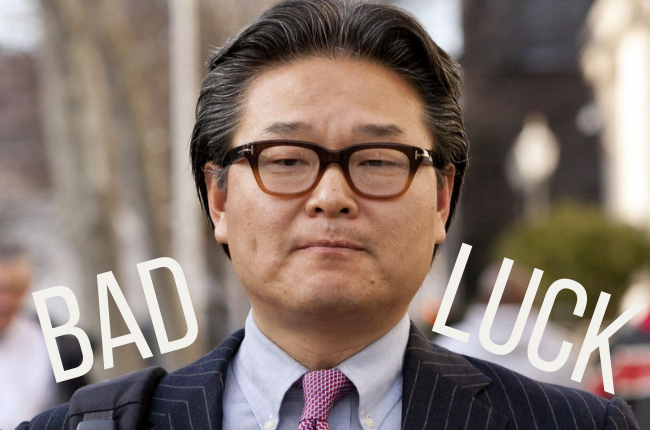Bill Hwang's Archegos Blow Up Was Just Bad Luck (TN06)

I live for moments like these. Moments where most portfolios are now outperforming Archegos Capital Management simply by not blowing up. But this case is a bit different than what’s being portrayed in the media. The Archegos fiasco may not be as unique as it seems, and Bill Hwang may have been unlucky.
When Luck Runs Out
An idea that’s obvious but overlooked is that investors on the same field play different games…Understanding your game, without being swayed by people playing different games, is a rare investing power.
Know Your Game
The quote above is from Morgan Housel’s Five Investing Powers [1]. It puts a lot of investing-related content into perspective for me. Most of what others are doing doesn’t have to make a lot of sense. Value vs. growth, technical vs. fundamental analyses, and cash vs. margin all have their uses. None of these things are good or bad on their own. They have to be considered in context along with the portfolio’s goal.
This week’s news focused on what a spectacular failure Archegos was, but most fail to mention that Archegos was playing a completely different game. All we know is that they were heavily levered and concentrated. Many funds have both of these properties but didn’t suffer the same fate last week. We’re zeroed in on Archegos because it makes for a good story. “Investor, who previously pleaded guilty to insider trading, managed to borrow billions of dollars from banks and blow up his fund” is a more appealing headline compared to “Investor may have been unlucky.”
Hwang typically ran dollar-neutral portfolios, equal amounts long and short. A portfolio that is long $25 billion of stocks and short $25 billion can be much safer than one holding $10 billion of unlevered stock. Lending $40 billion against such a portfolio might be prudent. Bloomberg [2]
Funds have blown up in the past, and they will continue to blow up in the future. The catalyst for Archegos was Viacom’s decision to issue new shares; companies do these regularly in the market, and it doesn’t predict returns. From the outside looking in, Archegos was unlucky.
A Bug In The System
We know that Archegos was able to bypass regulatory scrutiny by using swaps. Bill Hwang got exposure to a basket of stocks’ performance without buying into any position or directly owning any stock. The SEC has some rules requiring funds and individuals to disclose their positions. Still, on paper, Archegos didn’t meet those requirements despite having a portfolio estimated to be worth around $100 billion and owning about 25% of some companies [3].I have to admit, I got a bit anxious at the thought of the cascading effect the margin calls may have had on the market. Luckily the damage is limited (I think. We’re still learning), but we have bigger problems to worry about now that we know of Archegos. I wonder how many other “small” family offices exploit the system. As we’ve noticed, these swaps can be abused, but what if Archegos was just the beginning?You’d be naive to think this practice isn’t widespread. For all we know, Bill Hwang’s leverage may be modest compared to others. If all that’s keeping prices up is high prices and cheap access to capital, we have more significant problems. We know easy money leads to capital destruction, but up until now, easy money was limited to the Fed’s actions. Stimulus payments, bond & stock purchase programs, and low interest rates all fueled recent stock performance. What most investors thought to be somewhat justified is very questionable now that hidden (ignored) swap exposure and unlimited leverage are in the mix.
Sources
[1] https://www.collaborativefund.com/blog/five-investing-powers/
[2] https://www.bloomberg.com/opinion/articles/2021-03-30/wall-street-archegos-collapse-is-business-as-usual-not-a-disaster
[3] https://www.wsj.com/articles/inside-archegoss-epic-meltdown-11617323530
Weekly Chart


The S&P 500 recently crossed the $4,000 mark for the first time on Thursday. It was bleeding just a year ago, and now we’re at all-time highs. So much for hoarding toilet paper and building bunkers.
What to Read
Robinhood is finally getting rid of its digital confetti. I’ve been very critical of how Robinhood gamifies investing. Even though this won’t fix all the problems I notice in the app, it’s a welcome change. Read their blog post.

